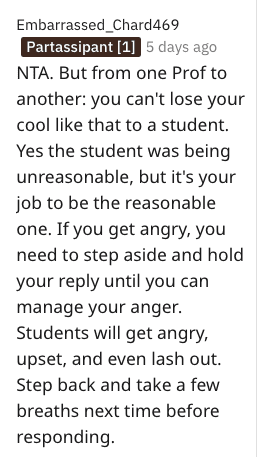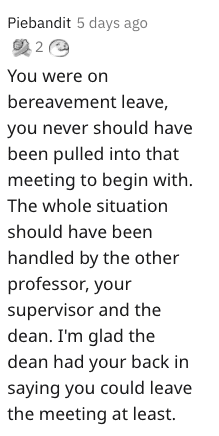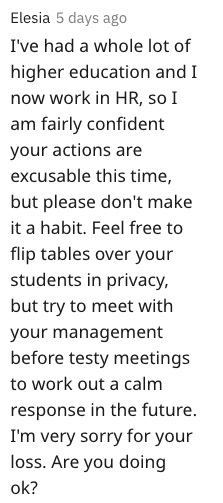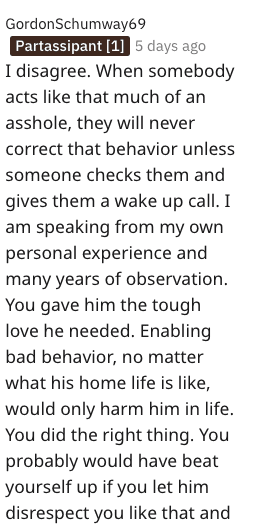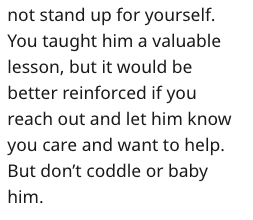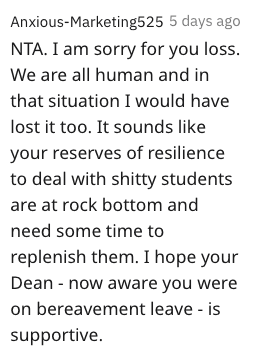Oh, boy…
The times, they are a changin’…
Well, I guess the times are always changing, right?
And that’s especially true when it comes to kids. Every generation is unique and learns from the triumphs and mistakes of the ones before them…and teachers who stick around long enough see kids change a lot throughout the years.
Teachers of AskReddit talked about which generation of kids they’ve enjoyed teaching the most. Let’s take a look.
1. Mid-1990s.
“I have taught emotionally disturbed children for much of my career.
The kids I had 25 years ago would constantly fight with each other. The kids I had most recently made a habit of going after me and the parents always wanted to know what I did to provoke them.
Give me my mid-1990s kids any day! They loved me as their teacher and didn’t tolerate any disrespect towards me from their peers.”
2. Changes…
“Started teaching in 2002. All of that has been middle school. Grades 6-8 (Ages 11-14)
Biggest changes have been prevalence and reliance on screens and devices, but ultimately what kids want is acceptance. And most of them will seek it wherever it can be found easily, which is on a screen.
All I can really say is that I am incredibly grateful that Facebook and social media did not exist when I was a kid/teenager.”
3. Bad writers.
“I’m a philosophy professor and the only thing I’ve noticed is that the latest generation of students (zoomers?) are like, really really bad at writing. Like, obscenely.
Every other generation I’ve taught has been roughly the same, with different philosophical predilections, but for some reason everyone’s just really bad at writing now (let alone philosophy).”
4. It was a simpler time.
“I recently passed my 10 year mark, so I’ve taught 2000s and 2010s.
Biggest difference is the coursework. Man do schools (and parents) love to cram so much work into such little time. They like having something to “show” for their kids schooling. Gone are the days when we could explore and learn. Where we could discuss topics, or I could even read them non-curriculum books, or do fun experiments.
Oh, little Timmy is 4 years old? Better start learning to write upper and lowercase alphabet letters perfectly. But don’t give the kids pressure. And don’t take away play time if they can’t finish in the allotted 10 minutes. But make sure they finish on time and there aren’t mistakes or you (the teacher) will get reprimanded for it.
Also the parents. They used to think being a teacher was a noble and respected job. Now many tell me that they know more than me despite my education and experience.
And god forbid I tell them their child made a mistake or had a behavioural incident. Then I’m either lying, or the kid didn’t mean it so how could I dare ask them to receive any consequence for their actions.
Parents are constantly undermining teachers, and the schools will throw teachers under the bus to keep a child’s tuition any day.
I also work in a private school. So the more money a family has, usually the worser the parents/children.
I miss the 2000s. A simpler time.”
5. Good kids.
“I like the kids I teach now.
They are, for the most part, really peaceful. We have so few fights on campus.
They are really accepting. LGBTQ folks would have been beaten when I was a kid, now it’s no factor. General apathy and major boredom rule the campus, but my kids still get up to fun.”
6. Gen Z’ers.
“I love my Gen-Zs.
They know us Elder Millennials saw some sh*t, and they are happy to lean right into the complete Iliza Schlesinger bit that we’ll do about basically everything pre-2005.
They’ll call out stuff like “Tell us about floppy disks!” and “Tell us about dial-up!” and “What about Surge, ma’am?” and I just do my best Madam Razz impression (reboot, not original She-Ra, these are Gen-Zs,) tell them about these things, and then reveal -to amazed gasps- an actual can of post-revival Surge, for whatever student can write me the best 250 words about a controversy of 1980 through 1985 before I get back from the john.
I handed out seven cans of Surge this week just on this topic. My students are glorious. I also saw one of my colleagues, who coaches a sport, happily sitting down to a wonderful lunch she had packed herself, took out a can of Surge, opened it, smelled it, savored it, saw me noticing and “I know, I know, it’s so bad for you. But I haven’t had this since I was a kid!” and I said “Not judgin’ here, love!”
And she described how one of her kids gave it to her after first period as a present and how she’d been looking forward to it all day and I remembered that one of my best writers, one of our best student athletes, is both Type I diabetic and just the sweetest person.
So I stopped by the good grocery store and got a bit of sugar-free Ramune, the fanciest and most delicious kind, which shall be theirs.”
7. Big shifts.
“I’ve been teaching in the humanities at a pair of universities for 11 years.
My main observation is that students don’t want a “think” piece anymore, they want a “doing” piece.
This shift happened about 5 years in to my tenure. It was a real break in what the students expected, and I felt compelled to adapt to it.
So a syllabus is now less “let’s learn about and reflect on a framework” and more “I want to do this myself first, then maybe we’ll see if there’s a framework there worth talking about.”
This can actually be a really good thing. I’m kind of a phenomenologist myself so I’m more or less theoretically oriented to the idea of learning equally from the experience of one’s self and from the experience of others. And then critiquing, reflecting, and acting on those experiences as a perfectly legitimate basis for a lot of good things that can come next.
But on the other hand, no one wants to read any more. It’s all bullet points and takeaways, slide decks and checklists, “gotta juggle my five classes but also my three side hustles”.
It encourages a kind of faddish approach, and frankly almost psychopathic and disconnected. It’s not about learning, it’s about extracting. On the cynical side of things, one might conclude that the students want to be given the cheat sheet so they can perform to others that “they know.” Everyone wants to be “a leader.”
This can cut both ways. For the students to be primed to apply what they’ve learned as and whenever it arises has arguably more practical impact in practice, so that’s good. But on the other hand, I feel that something deeper here with the academic process is being lost and very deeply devalued.
And I’m not so confident about what higher education will look like in 15 years as a result, particularly in context of the corporatized profit model that is already pressuring the academy in general.
It’s like every subject has become an MBA. And we used to poke fun of those guys for being problem-solving droids happily operating in narrow little boxes of their own making.
So that’s one big shift.
The other big shift I feel I am living through as a teacher is the total diminution of the classical era. The 1960s, 70s, 80s and 90s had their fair share of prophets of radical socio-technological change. But it’s only really now in the post-truth social media bot and AI-content-warped world of literal augmented reality that it has finally come to be.
Our globalized world is so radically different now that Greeks, Romans, Renaissance and even early modernists are all just looking like a quaint bunch of vaguely charming and very embarrassing (“cringe”) Neanderthals. A restatement of origins like “Hamilton” is about as far back as anyone feels they’d ever need to bother looking.
I frequently imagine the great contrarian Nietzsche himself feeling sidelined as the aging and irrelevant hippy amidst a world that has rendered his protest against the human condition itself as anachronistic.
There’s a radical un-mooring from history taking place and, combined with the new approach to learning I describe above, it’s really hard to feel any confidence in where the eff it’s going to take us.
The trend feels very technocratic in direction. And while that can be an admirably evidence-driven form of politics (“trust the science” as Biden feels compelled to repeat, for instance), it can also very easily subordinate a lot of values, rights, and principles that don’t look any more compelling as a bunch of bullet points than anything else on the to-do list.”
8. 1990s kids.
“I’ve been teaching for 28 years. From elementary to high school.
I’ll take the children if the 90’s because cell phones didn’t distract the students and most parents didn’t try to blame the teachers on the failures of their child.”
9. Much easier these days.
“I like teaching NOW because we have a lot of technology that makes things easier.
No more grading tests by hand, or standing in line to run scan-trons.
Pretty sweet!”
10. More respectful now.
“I like them all.
But my favourite thing about this generation is that they are in general more respectful, polite and empathic.”
11. Mom’s POV.
“My mother taught 6 year olds in the 60s, 80s and 90s.
The kids didn’t change much but the paperwork, administration and social work got too much for her at the end. Kids coming to school not being fed, reeking of smoke and pot.
And parents went from being allies to some becoming outright hostile for their kids being given the slightest reprimand – like “Jheydenn, you didn’t help tidy up so you’ll need to wait for the other children to go play before you can go”. Oh and names.
Not cultural, but badly spelled and weird names like “Hastalavista” and “Fordescort”. She still loves running into her old kids, many of whom had children she taught, and some are now grandparents.”
12. Reflections of society.
“It’s difficult to compare generations, but I can tell you something students are a reflection of the society around them, and if I compare students I have a had to what I was like there is a dramatic difference which I put down to social change.
The two most dramatic differences that I notice are that students now are far more emotional sensitive, which can be a good, or bad thing, and far less independent of thought. Social media, more standardized testing, less real life difficulties, and more imagined ones all contribute to this.
When I was growing up in the 80s and 90s I never worried about my future, and I didn’t feel any pressure socially to conform. I was always encouraged by friends and society to think, act, and learn independently. There were no universal right answers, and very little outside expectations.
Now, I find students feel constantly under pressure to outcompete each other, attain artificial goals, and not offend anyone. For a long time I taught graduates basic academic skills because schools either ignored, or refused to teach basic rhetorical, discussion or argumentative skills.
It is my default setting to assume the current generation of students, cannot automatically play devils advocate, or challenge accepted viewpoints. They are constantly being forced to accept whichever sides argument is dominant, and seem conditioned to follow whoever they have told to follow. It is a frightening situation.
Also, artificial competition has hollowed out people’s lives. Growing up me and everyone I knew had interests and hobbies. I rarely find that now with young people. And the interest and hobbies people do have have changed.
When I ask people what they do in their free time, the number one answers are always, browse social media, shop, and meet up with friends to take photos for social media.
Actually, that is being generous, the most common answer I get is actually ‘nothing.’ Students at high school and university don’t even seem to be able to manage the old cliched ‘s*x, drugs, and rock’n’roll.’ Bravado that dominated my generation, and the generations for that. People don’t seem to have the time, or energy to even enjoy themselves now.
It must suck being young now, or at least that is what I was told.”
Now we want to hear from more teachers!
Tell us about the favorite generation that you’ve enjoyed teaching in the comments.
Please and thank you!
The post Teachers Talk About What Generation of Kids They Liked Teaching the Most appeared first on UberFacts.

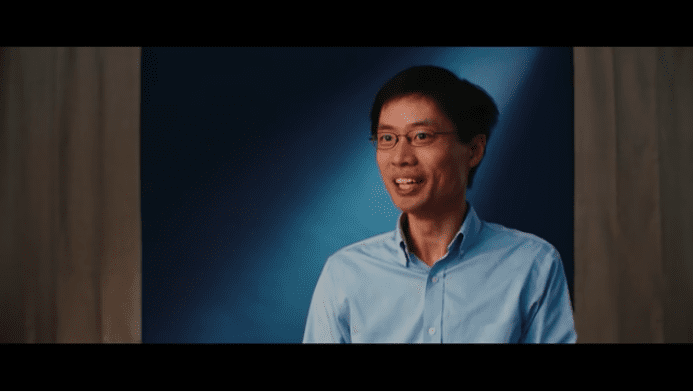
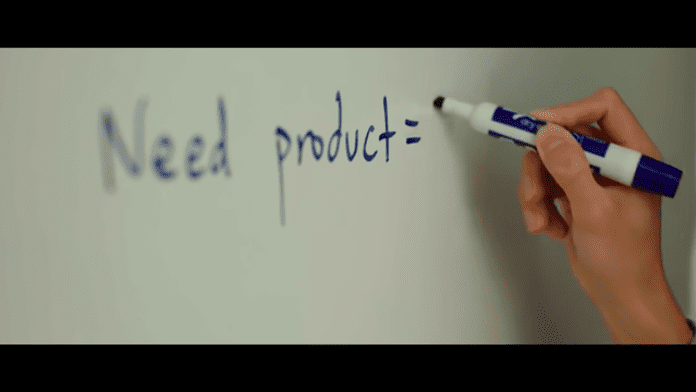
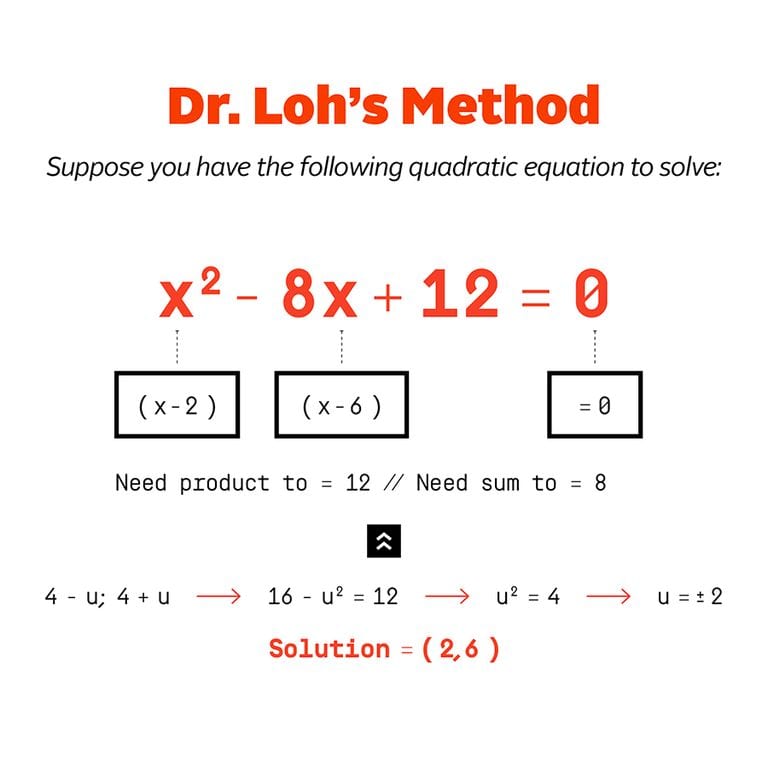



 Cat Jacques
Cat Jacques 

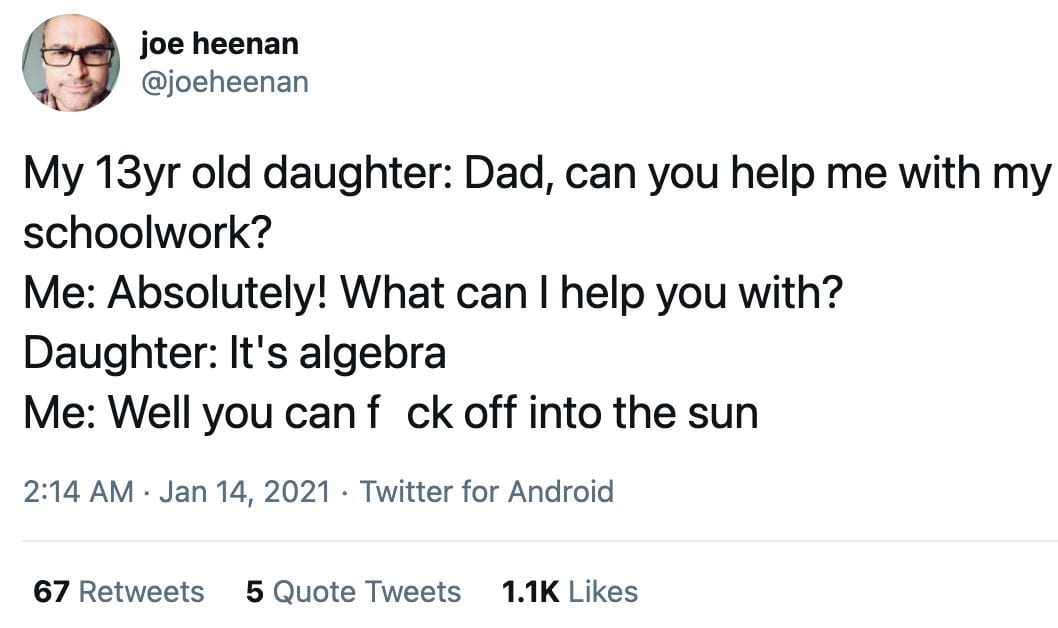
 (@CJessCooke)
(@CJessCooke) 





